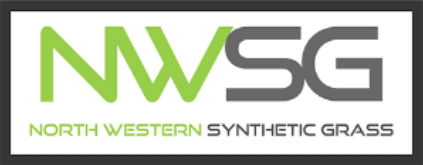Homeowners in Vancouver, Burnaby, Surrey, Langley, and the Fraser Valley are increasingly seeking sustainable landscaping solutions that minimize negative environmental impacts while maintaining beautiful and functional outdoor spaces. The growing demand for eco-friendly alternatives has led to a surge in artificial grass installations, offering both aesthetic and practical benefits, along with the potential to reduce the strain on natural resources. By exploring the environmental advantages of artificial grass, homeowners can better understand the potential role of premium quality synthetic turf products in creating sustainable landscapes that preserve the region's natural beauty.
Artificial grass installations are an ideal solution for individuals looking to reduce their environmental footprint without sacrificing the appearance and functionality of their yard. A professionally installed synthetic turf offers a lush and attractive green surface that remains vibrant year-round, despite the diverse weather conditions experienced in Vancouver and the Fraser Valley. By incorporating artificial grass into their landscaping projects, homeowners can contribute to more sustainable practices, conserve water, diminish the use of chemicals, and lower the impact on local ecosystems.
In this article, North Western Synthetic Grass will evaluate the environmental impact of artificial grass installations, examine the ways in which synthetic turf contributes to sustainable landscaping practices, and offer insights into the advantages and potential limitations of artificial grass as an eco-friendly solution. Expand your knowledge of the environmental benefits of artificial grass and gain a deeper understanding of how premium quality synthetic turf installations can help conserve resources, reduce waste, and support responsible landscaping choices in Vancouver, Burnaby, Surrey, and Langley.
Discover the potential of artificial grass to contribute to a sustainable and environmentally conscious landscaping strategy, allowing homeowners to enjoy a stunning and functional outdoor space that minimizes its impact on the natural world.
Water Conservation: A Critical Environmental Benefit of Artificial Grass
One of the most significant environmental advantages of artificial grass installations is the considerable reduction in water consumption. Traditional lawns require substantial amounts of water to maintain their health and appearance, whereas synthetic turf eliminates the need for regular watering and irrigation.
1. Reduction in water usage:
In arid and semi-arid regions such as Vancouver, Burnaby, Surrey, and Langley, water scarcity is a prevalent concern that affects both residential and commercial landscaping practices. Installing artificial grass can save large amounts of water each year, conserving a vital resource and reducing overall water consumption.
2. Lowered impact on local water supplies:
By significantly decreasing the amount of water needed to maintain a lush and green space, artificial grass installations help alleviate pressure on local water supplies and contribute to more responsible water management practices.
Reducing the Use of Harmful Chemicals with Synthetic Turf
Another crucial environmental benefit of artificial grass installations is the reduction or elimination of harmful chemicals required for lawn maintenance. Traditional lawns often necessitate the use of pesticides, fertilizers, and weed control treatments, which can pose risks to both human health and local ecosystems.
1. Elimination of pesticides:
By installing artificial grass, homeowners can eliminate the need for toxic pesticides, which are dangerous to human health and can contaminate local waterways through runoff. The absence of pesticides also benefits local wildlife and ecosystems by reducing exposure to these harmful chemicals.
2. Less reliance on fertilizers:
Synthetic turf eliminates the need for fertilizers that contribute to excessive nutrient loading in local water bodies, leading to harmful algal blooms and other ecological disruptions. Moreover, artificial grass requires no additional nutrients to maintain its vibrant and lush appearance, further reducing the dependency on chemical fertilizers.
Promoting Sustainable Landscaping Practices with Artificial Grass
Integrating artificial grass into landscaping projects can contribute to more sustainable practices that minimize the strain on natural resources and protect local ecosystems. By recognizing the role of premium quality synthetic turf in sustainable landscaping, homeowners can adopt responsible choices that promote environmental stewardship.
1. Low maintenance requirements:
Artificial grass installations require significantly less maintenance compared to traditional lawns, reducing the overall energy consumption associated with fuel-powered lawn equipment. The minimal upkeep also means that synthetic turf generates less air pollution from the use of lawnmowers, trimmers, and other gas-powered devices.
2. Longevity and durability:
High-quality artificial grass products are designed to withstand years of use, ensuring their long-term performance and eco-friendly attributes. The durability of synthetic turf reduces the frequency of replacement and contributes to a more sustainable landscape solution.
3. Recyclable materials:
Many artificial grass products are made from recyclable materials, further contributing to their environmentally friendly nature. By choosing synthetic turf products that can be recycled at the end of their lifecycle, homeowners can support circular economy principles and reduce the overall environmental impact of their landscaping choices.
Addressing Potential Environmental Concerns
While artificial grass provides numerous environmental benefits, it is essential to address potential concerns to create a truly sustainable landscaping solution.
1. Heat reflection:
Artificial grass can absorb and reflect heat, particularly during hot summer months. To mitigate the heat island effect, homeowners should choose synthetic turf products with advanced temperature control technologies and incorporate shade structures, such as trees and pergolas, into their lawn design.
2. Permeability and drainage:
Proper drainage and permeability are essential in synthetic turf installations to prevent runoff and protect local water quality. During the planning and installation process, ensure that your yard has a suitable drainage system to manage stormwater effectively and reduce erosion.
Conclusion
Artificial grass installations offer a sustainable and environmentally conscious landscaping alternative for Vancouver, Burnaby, Surrey, and Langley homeowners. By understanding the environmental benefits of synthetic turf, including water conservation, reduced chemical usage, and sustainable landscaping practices, homeowners can make informed decisions that contribute to a more eco-friendly outdoor space.
Embrace the potential of artificial grass to minimize the environmental impact of your landscaping projects while maintaining a beautiful, functional, and low-maintenance outdoor sanctuary. As a conscientious homeowner, consider how premium quality artificial grass installation can enhance your property and reflect a responsible commitment to sustainability and the environment. Rely on North Western Synthetic Grass for artificial grass installation in Vancouver.







